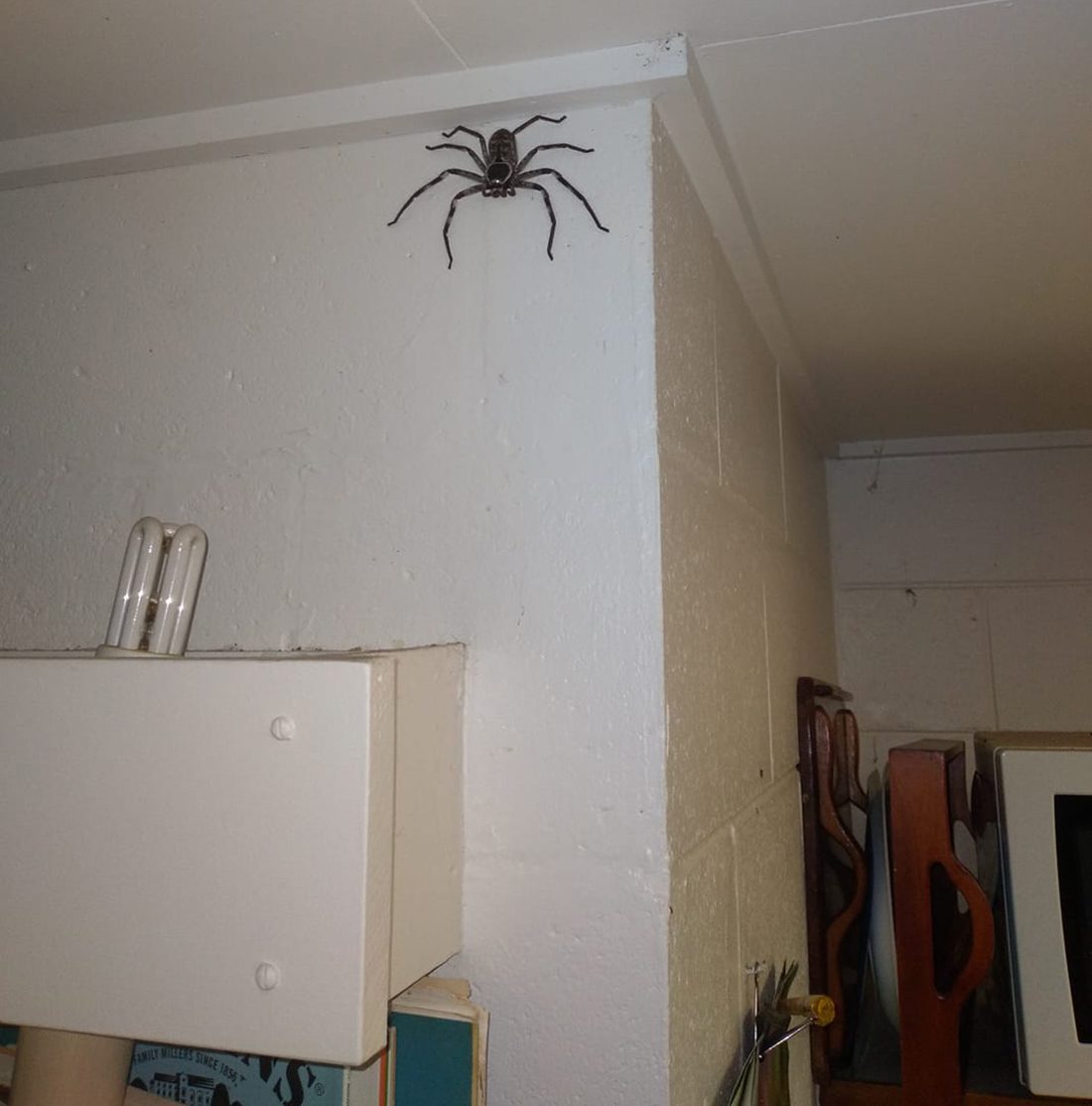Ah Australia, the land where even if it isn’t trying to kill you there’s a good chance it’ll make you wish you were dead anyway.
Today in “let’s just admit it’s uninhabitable” news, an Australian man has shown off his house guest that’s been living with him for a whole year. In a post to the Australian spider identification page on Facebook, Jake Gray said that he had been “watching her grow” over the last year, her being a gigantic huntsman spider.
Most of you who aren’t Australian would probably decide it was time to move house if you saw this, and (rightly) assume that the house belongs to them now. Not Jake, who glanced up and clearly thought “housemate material”. Jake wrote on Facebook that he even hopes “she will grow some more” as time goes on.

Image courtesy of Jake Gray
“Huntsman spiders have always been tolerated in our home due to their appetite for cockroaches, and we don’t use toxic kill all chemicals for pests,” Jake explained to IFLScience. “Just point and push flysprays.”
He and his family named the spider Charlotte in order to calm their son Jack and daughter Bella’s apprehensions about having the spider live with them all.
“We first spotted Charlotte 12 months ago and she was bigger than usual and over the year she would pop up,” he said in 2020, adding “seeing her eating a Asian house gecko was a highlight.”
While it may look pretty terrifying, with people in the comments chipping in to say “bruh, that’s the spider’s house now” and share gifs of Michael Scott yelling “NO”, this particular species isn’t as harmful as it appears.
Holconia immanis – better known as the Banded huntsman or Sydney huntsman – do produce venom but are unlikely to use it on any humans. They prefer to run away rather than bite (the cowards), and if they were to bite you the effects would be mild.
The main way they can cause you harm is by scaring you into doing something reckless, such as freak out and drive your car into a lake which one man did in 2016 after one touched him on his arm.
For the most part, the spiders are completely harmless and even act as a pest-control service, taking out other unwanted guests most of which are smaller than this poor possum.
The spiders, as well as growing up to around 15 centimeters (6 inches), are fast, so (while it’s easier said than done) the best way to deal with them is to remain calm.
“What should you do if you do find a big spider in your car or living room? First, get a grip! She isn’t going to hurt you,” behavioral ecologist and spider expert Linda S. Rayor wrote in a piece about the spiders.
“Second, find a take-away container, scoop the spider into the container and release it outside. Huntsman spiders almost never bite humans since they rely on speed to escape most predators. When they do bite, most bites are quick defensive nips without injecting venom.
In 14 years of studying Aussie huntsman spiders, I’ve handled many thousands of individuals and been bitten only 11 times when I (mostly) deserved it.”
This article was originally published in December 2020.
Source Link: Australian Man Explains Why He Let A Spider The Size Of His Face Live In His House For A Year